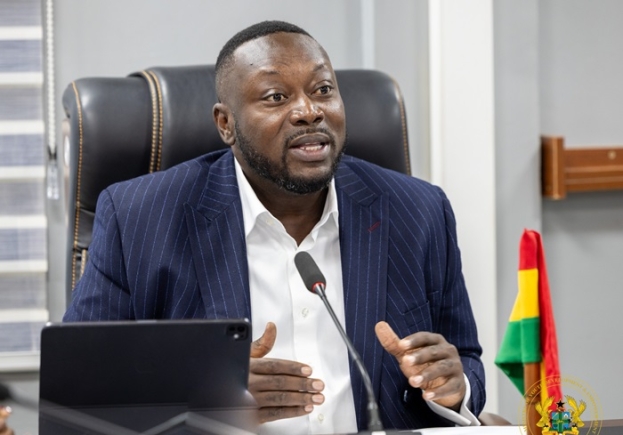George Opare Addo, Minister for Youth Development and Empowerment, has raised alarm over the escalating rates of teenage pregnancies and drug abuse among Ghanaian youth, describing the twin issues as a serious threat to the nation’s future workforce and overall development.
Speaking at a national youth dialogue held in Accra on November 5, 2025, the minister characterized the surge in student drug use as a “national emergency” requiring swift and coordinated intervention.
He cited recent statistics indicating that 41% of tertiary students and 37% of senior high school students have experimented with drugs. Opare Addo warned that if left unchecked, this trend could severely undermine Ghana’s human capital development.
“Substance use is becoming increasingly normalized on school campuses,” he said, noting that students are using alcohol, marijuana, synthetic pills like the widely known ‘red 2-2-5,’ and even hard drugs such as cocaine and heroin.
He expressed concern over the ease of access to these substances, which are now readily available through peers, street vendors, pubs, and covert on-campus dealers. The rise of online ordering and courier delivery systems has further complicated enforcement efforts, allowing youth to obtain drugs with minimal human interaction.
Mfantsipim School clinches fourth NSMQ title in 2025 grand finale
According to the minister, factors such as curiosity, peer pressure, and the need to belong are driving students toward drug use. Others turn to substances as a way to cope with stress, academic demands, and emotional challenges.
He revealed that 26% of first-time users are between the ages of 14 and 15, while 41% fall within the 16 to 17 age bracket. “Early exposure to drugs impairs cognitive functions, disrupts emotional regulation, and often leads to truancy, behavioral issues, and long-term addiction,” he cautioned.
Opare Addo emphasized that drug abuse affects not only the individual but also families and society at large. “When one person in a household begins abusing drugs, it becomes a family crisis,” he said.
He lamented that only 36% of schools currently offer counseling and support services for students dealing with substance-related issues. He urged immediate action to strengthen these services, increase awareness campaigns, and expand psychosocial support across educational institutions and communities.
To address the crisis, the Ministry of Youth Development will partner with the Ministries of Health and Education, along with civil society organizations, to formulate a comprehensive national strategy focused on curbing drug use and promoting mental health among young people.
“Safeguarding the health and future of Ghana’s youth is not just a governmental responsibility—it’s a shared national duty,” he asserted. “Every young life lost to drug abuse is a lost opportunity for the country.”
In addition to substance abuse, Opare Addo spotlighted the alarming rate of teenage pregnancies, calling it a “social and economic crisis” that continues to hinder national progress.
He disclosed that Ghana records over 100,000 teenage pregnancies annually, with 19% involving girls aged 15 to 19. “These numbers reflect broken dreams and disrupted education for thousands of young girls,” he said.
The minister noted that teenage pregnancies are most common in rural and underserved areas, where access to education and reproductive health services is limited. He warned that early motherhood often results in school dropouts, health risks, and a generational cycle of poverty.
